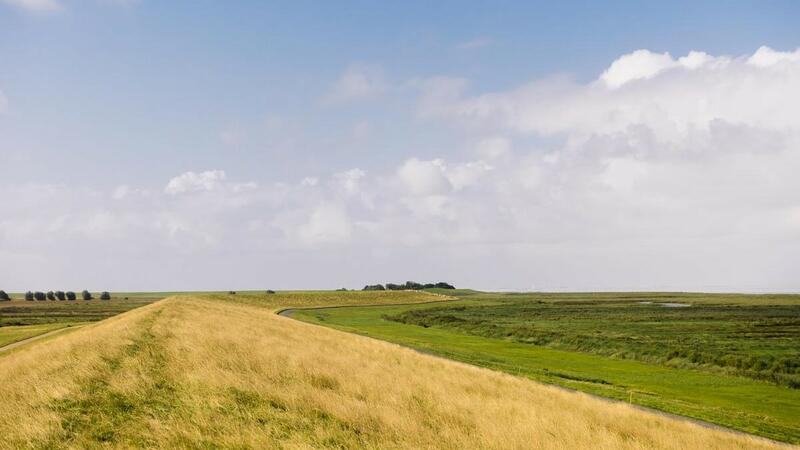Wadden Sea Day 2025
Wilhelmshaven (D)

Crossing the Dike: Ecological, Landscape and Cultural Perspectives between Sea and Land
The 2025 Wadden Sea Day addresses complex relationships ‘across the dike’ and aims to highlight and share ideas for action.
The Wadden Sea is not only a shared marine ecosystem across the three countries of Denmark, Germany, and the Netherlands. It is also an open system, shaped by natural processes and a historical human influence. Life here is dynamic – the water, sediments, nutrients and many species interact and link the open North Sea to the hinterland beyond the dikes. Rich geological and cultural landscape history drive this, as the coastal marshlands are cultivated former mudflats whose waters still hold traces of the former tidal channels. The influx of small and large watercourses into the Wadden Sea is certainly significant to the system as are dependencies of inland water management on hydrological conditions in the marine environment.
Many animal species, in particular birds and fish, migrate back and forth between the Wadden Sea and the areas behind the dikes relying on both habitats during their annual and life cycles for reproduction, feeding, resting or as migration routes.
Humans are closely connected too, where cultural and socio-economic coastal activities have long lasting land-sea relationships. The Wadden Sea provides coastal residents and visitors with important ecosystem services that benefit tourism, fisheries and coastal protection. At the same time, human use of the coast for infrastructure, for example marine traffic and energy, and other purposes can place a strain on the Wadden Sea and impair its Outstanding Universal Value.
The 2025 Wadden Sea Day aims to offer new scientific insights on these intertwined relationships between the Wadden Sea and the hinterland. The contributions will highlight ideas on how to complement Wadden Sea conservation and management, and contribute to protecting the transboundary Wadden Sea World Heritage Site even more effectively in the future.
We welcome practitioners, scientists, policy-makers, conservation managers and non-governmental organisations working in this field.
Online registration will open soon and is free of charge.
